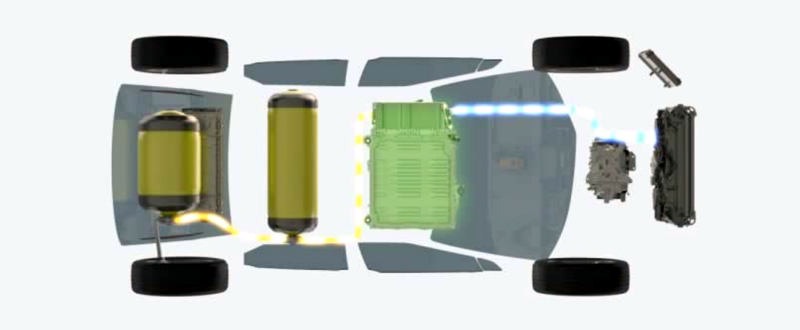| Following Elon Musk's lead, Toyota has opened up thousands of fuel cell-related patents in an effort to get the fossil fuel replacement technology into higher acceptance and production. The company hopes to create demand for hydrogen stations by encouraging other automakers to bring their own fuel cell vehicles to the market. |
| |
Elon Musk's philosophy of patent sharing seems to be making quite an impact across the auto industry. He made Tesla's electric car patents available to all automakers recently, in an effort to give the EV movement a much-needed boost, showing his commitment to promotion of EVs as the only viable alternative to conventional cars. Now, that idea of opening up patents to speed up the development of a novel technology is being embraced by Toyota, which announced that it will share its hydrogen fuel cell technology in an attempt to motivate other car makers to start developing fuel cell vehicles.
| Related articles |
That's exactly what Toyota is trying to achieve with the release of about 5,680 patents – create demand for hydrogen stations by encouraging automakers to bring their own fuel cell vehicles to the market. “At Toyota, we believe that when good ideas are shared, great things can happen,” said Toyota's Senior Vice President, Bob Carter, before making the announcement on the company's decision to share its technology, at the CES in Las Vegas, and added: The first generation hydrogen fuel cell vehicles, launched between 2015 and 2020, will be critical, requiring a concerted effort and unconventional collaboration between automakers, government regulators, academia and energy providers. By eliminating traditional corporate boundaries, we can speed the development of new technologies and move into the future of mobility more quickly, effectively and economically.
With this move, Toyota demonstrates just how confident it is that hydrogen is the way to go for ensuring a carbon-free future, and hopes to get the support of other companies while trying to advance fuel cell technology on its way toward commercialization.
| By Jordan Perch | Embed |
Author Bio - Jordan Perch is an automotive fanatic and “safe driving” specialist. He is a writer for DMV.com, which is a collaborative community designed to help ease the stress and annoyance of “dealing with the DMV”





0 comments:
Post a Comment